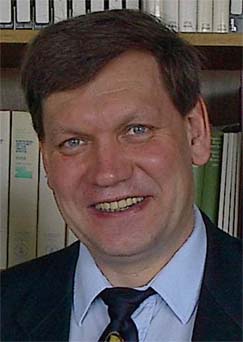The Quest for Human Longevity: - A Correction
See also:
-- 'Books Forum' blog
-- 'Health Studies' blog
Greetings,
Recently an interesting story on aging and longevity has been published by the Vancouver Sun:
It's an Old Story
Scientists, Engineers Replace Alchemists, Novelists in The Quest for Human Longevity
By Stephen Hume, Vancouver Sun
This is a well-written article, which requires some corrections in the part where our scientific activities are described. Attached below are the corrected excerpts, with corrections marked in bold. Then the explanation follows why these corrections are made:
Here is why the corrections are made. It was written in the published story:
while in fact I am an American-Russian researcher, and not a director, please see my publicly available resume here:
http://longevity-science.org/CV-gavrilov.htm
It was also written in the published story that allegedly I
Hope this helps.
It is amazing to see these inaccuracies happen when the reporters write their stories without even contacting the subjects involved (me in this case). Obviously these mistakes could be easily avoided if the reporters contact me before their publication.
Key words:
Human Longevity, Vancouver Sun, Stephen Hume, Leonid Gavrilov, Center on Aging, NORC, University of Chicago, Natalia Gavrilova, Biology of Life Span, reliability theory, The Independent, Life-Extension, anti-ageing, anti-aging, ageing, aging, longevity
Home:
Longevity Science Blog
and
The Quest for Human Longevity: - A Correction
Shorter weblink:
http://tinyurl.com/d59ul4
.
-- 'Books Forum' blog
-- 'Health Studies' blog
Greetings,
Recently an interesting story on aging and longevity has been published by the Vancouver Sun:
It's an Old Story
Scientists, Engineers Replace Alchemists, Novelists in The Quest for Human Longevity
By Stephen Hume, Vancouver Sun
This is a well-written article, which requires some corrections in the part where our scientific activities are described. Attached below are the corrected excerpts, with corrections marked in bold. Then the explanation follows why these corrections are made:
"Dr. Leonid Gavrilov, an American-Russian longevity researcher working at the Center on Aging, NORC/University of Chicago, wrote in the IEEE Spectrum that:"Many researchers now believe that one day the human life span could be greatly extended by replenishing aging organs with stem cells. We are just now starting down this road. Such regenerative medicine and tissue engineering may sound like science fiction, but a growing number of scientists are taking the first steps to grow tissues and organs to replace failed ones. Laboratories around the world are making progress in building replacement lung, kidney, liver, and heart tissue."
"Gavrilov and his wife, Natalia Gavrilova, galvanized longevity research with their 1991 book, The Biology of Life Span: A Quantitative Approach, which is still cited as an authority by Encyclopedia Britannica."
"The two scientists studied the mathematical models of reliability theory devised by engineers to assess systems failure in computers and other complex machines and then applied them to the human body, shedding light on why and how human beings age and then die."
Here is why the corrections are made. It was written in the published story:
"Dr. Leonid Gavrilov, a Russian longevity researcher working at the University of Chicago, where he's a director of the Centre of Aging..."
while in fact I am an American-Russian researcher, and not a director, please see my publicly available resume here:
http://longevity-science.org/CV-gavrilov.htm
It was also written in the published story that allegedly I
"...told The Independent that "replacing damaged organs to greatly extend the human lifespan by substituting young and healthy for old and failing is no longer science fiction."I do not recall saying this, and, moreover, please see my original published statement on this topic in bold above.
Hope this helps.
It is amazing to see these inaccuracies happen when the reporters write their stories without even contacting the subjects involved (me in this case). Obviously these mistakes could be easily avoided if the reporters contact me before their publication.
Key words:
Human Longevity, Vancouver Sun, Stephen Hume, Leonid Gavrilov, Center on Aging, NORC, University of Chicago, Natalia Gavrilova, Biology of Life Span, reliability theory, The Independent, Life-Extension, anti-ageing, anti-aging, ageing, aging, longevity
Home:
Longevity Science Blog
and
The Quest for Human Longevity: - A Correction
Shorter weblink:
http://tinyurl.com/d59ul4
.
Labels: aging, Biology of Life Span, Center on Aging, Leonid Gavrilov, longevity, Natalia Gavrilova, NORC, reliability theory, Stephen Hume, The Independent, University of Chicago, Vancouver Sun


